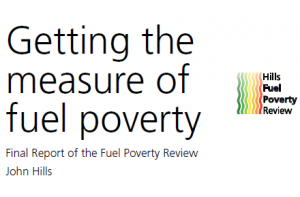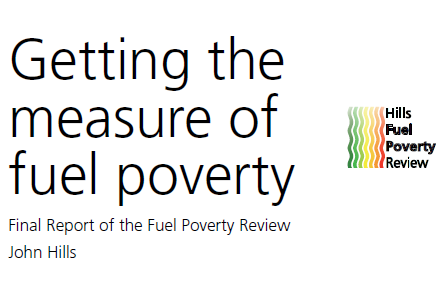A new way to measure fuel poverty in England is being proposed by the Government following the independent review on this issue by Professor John Hills of the London School of Economics (LSE) published in March this year.
 |
| [relatedPosts title=”Related Posts”] |
|
|
Ensuring more accurate measurement will help to design effective solutions to fuel poverty, allowing the resources available to be targeted where they are needed most.
The Department of Energy and Climate Change (DECC) is proposing to adopt a new definition based on the overall framework suggested by Hills in his review. This new proposed definition includes dual indicators separating the extent of the issue (the number of people affected) from its depth (how badly people are affected) as a way to measure the problem.
Energy and Climate Change Secretary Edward Davey said:
“We want to make sure people across the country are able to keep warm in winter and we have a range of schemes in place already doing just that.
“But with the number of people living in fuel poverty projected to rise, the time has come to go back to basics to ensure we are doing all we can.
“This means defining and measuring fuel poverty in the right way and working up a new fuel poverty strategy so that we can target our available resources where they are needed most.”
The consultation also considers the implication of changing the definition for the fuel poverty target which is currently set out in the Warm Homes and Energy Conservation Act 2000. As the definition of fuel poverty proposed is relative but the current target is focused on eradication as far as reasonably practicable by an end date of 2016, the consultation asks for views on whether the target should be amended to align it with a new type of definition, as recommended by Hills in his review. This is not confirmation of a change in the fuel poverty target; it is recognition of the fact that a new definition may not align with the target as it currently stands and this needs to be considered.
DECC will publish its decisions following consultation early next year, alongside an updated fuel poverty strategy to ensure resources are being used in the best possible way.
Further Information
The 2012 fuel poverty consultation can be found here.
Professor John Hills’ independent review on fuel poverty can also be found here.





